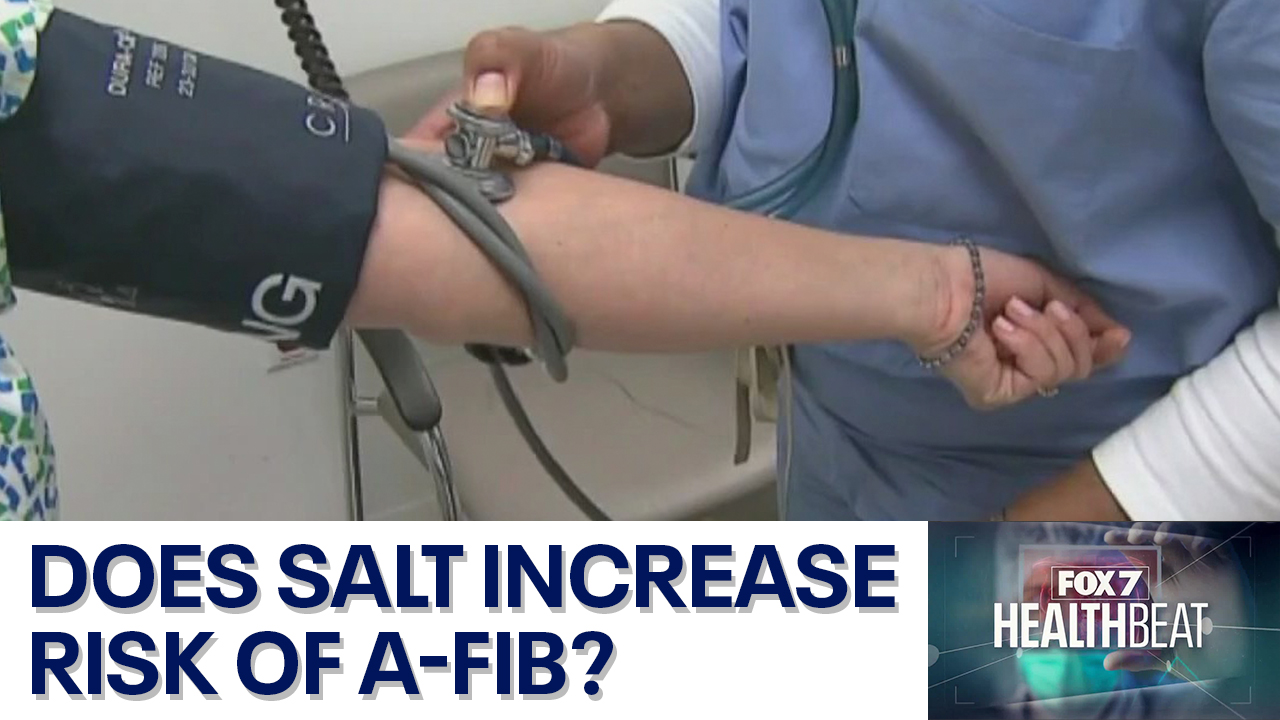Afib could increase risk of developing dementia: study

Study on link between A-fib and dementia
A-fib is an arrhythmia in the upper chambers of the heart that can cause blood to coagulate there.
AUSTIN, Texas - A study published in the Journal of the American Heart Association found people newly-diagnosed with a common irregular heartbeat called atrial fibrillation, or afib, had a 13 percent higher risk of developing dementia.
The risk was even higher among those diagnosed before the age of 65, at 65%.
A-fib is an arrhythmia in the upper chambers of the heart that can cause blood to coagulate there.
"That sort of stagnation of blood, if patients aren’t treated with anticoagulants or blood thinners, can cause a clot that eventually is lodged and goes into the vascular system," explained Dr. Andrea Natale, an electrophysiologist and the executive medical director of the Texas Cardiac Arrhythmia Institute at St. David’s Medical Center. "And, most of the time, it goes into the brain and causes stroke. When we see atrial fibrillation, we always worry about making sure that the patient is properly treated."
Depending on the type of afib, treatment can be through medication or a surgical procedure where a catheter is inserted into the heart’s upper chambers to fix the area causing the arrhythmia.
"What we tell people is don’t ignore when something is wrong," said Dr. Natale. "See a doctor, because it’s not that obvious that you’re in atrial fibrillation. Not everybody feels like their heart is flopping around, or their heart is beating faster. That’s a minority of people who feel that."

Does salt increase risk of AFib?
A new study finds that people who don't add salt to their meals are 18 percent less likely to develop AFib. Dr. Joaquin Cigarroa with Heart Hospital of Austin and Austin Heart joined FOX 7's Rebecca Thomas to discuss.
Symptoms vary by person, but can include fatigue and shortness of breath. Afib can be consistent, or it can come and go.
Dr. Natale said statistically, in the western world, 1 out of 4 people will develop afib by the age of 40, though it’s more common between the ages of 50 and 60. He noted there is a genetic predisposition.
"On top of that, there can be environment things that make the genetic predisposition act up," Dr. Natale explained. "That can be aging, inflammatory process, hypertension, sleep apnea, being overweight, especially in the U.S., what we call metabolic syndrome is a big culprit in activating the genetic predisposition."
As for the possible link between afib and dementia, when looking at MRI images of the brain, blood flow is diminished during episodes of a-fib, increasing the risk.
"So, it's multiple reasons from microclots to microbleeds, blood flow to the entire structure that affect long-term brain function," said Dr. Natale.
He said people with afib who have symptoms of dementia are usually in their late 70s or early 80s. However, it can happen to people who are in their 60s.
To learn more about the study, click here.

